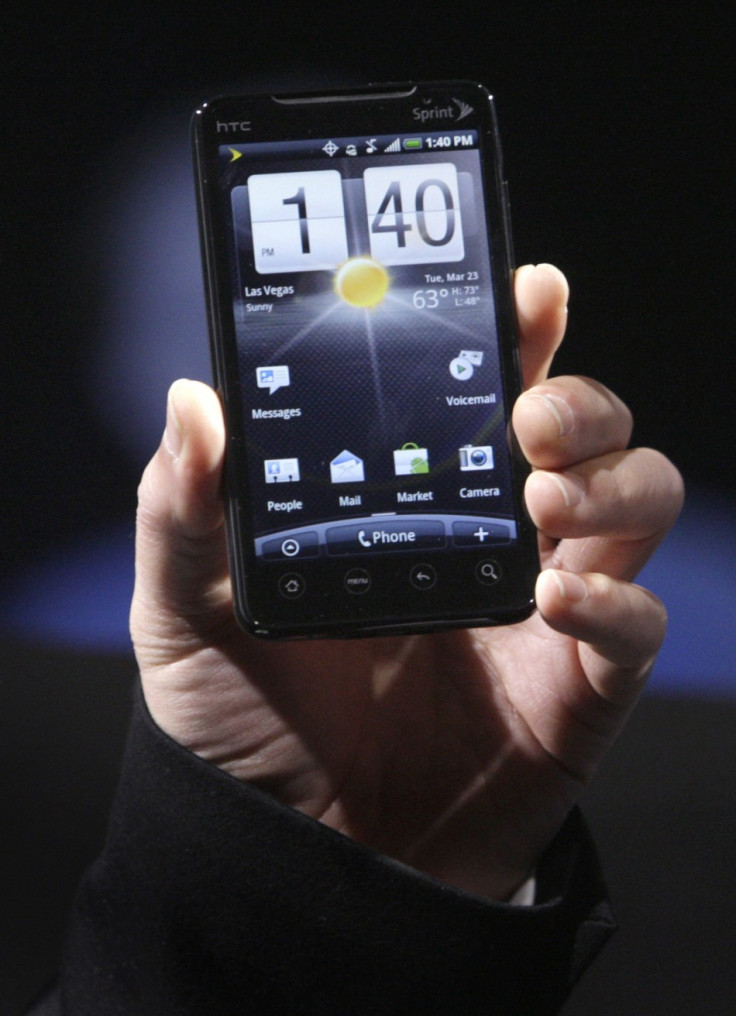HTC Evo 4G LTE vs Samsung Galaxy S2: Battle of The Biggies

HTC has unveiled its Evo 4G LTE which is the carrier's first smartphone with 4G capabilities. The feature-packed smartphone includes Beats audio which delivers a realistic sound experience as well as HD voice, near field communication (NFC) and Google Wallet. On the other hand, the Galaxy S2 has turned out to be an amazing device, thanks to, dual-core processor, voice talk and NFC. The ultra-slim device offers faster processing, browsing, gaming as well as multitasking.
Check out how both the smartphones stack up:
Display
HTC Evo 4G LTE flaunts a Super IPS LCD2 capacitive touchscreen with a resolution of 1,280 x 720 pixels. The 4.7in screen incorporates a HTC Sense User Interface (UI) and Corning Gorilla Glass which protects it from daily wear and tear.
In comparison, the Galaxy S2 comes with a 4.3in Super AMOLED Plus capacitive touchscreen with a resolution of 800x480 pixels. It includes a Corning Gorilla Glass and TouchWiz UI 4.0 version which features virtual improvements and gestures functionality. Gestures are powered by motion sensors which include panning, turnover, tilt and double tap.
Processor
The Evo 4G LTE is powered by a 1.5GHz Krait dual-core CPU and Adreno 225 GPU which offers support to powerful graphics.
The Galaxy S2 is powered by a 1.2GHz Cortex-A9 dual-core CPU and an Exynos chipset. With support for 2D vector graphics through OpenVG 1.1 as well as 3D graphics via OpenGL ES 1.1 and 2.0, the Mali 400 MP provides a complete acceleration platform, minimises heat dissipation and maximises battery life.
Camera
Both the smartphones boast of an 8 megapixel rear-camera which features autofocus, LED flash, geo-tagging and face and smile detection. It also lets you capture Full HD 1080p video.
The HTC smartphone comprises a 1.3 megapixel front-facing camera for video calling. The Galaxy S2 contains a 2 megapixel secondary camera which is suitable for video chats.
Operating System
The HTC Evo 4G LTE runs on Android 4.0 Ice Cream Sandwich which features improved text input, spell checking, multitasking, new lock screen actions and resizable widgets.
In comparison, the Galaxy S2 runs on Android 2.3 Gingerbread, a slightly older version of Android. Luckily, it can now be upgraded to the latest Android ICS.
Connectivity
Both the smartphones feature Wi-Fi 802.11 a/b/g/n with Wi-Fi Direct, DLNA and Wi-Fi hotspot. The HTC smartphone offers support to Bluetooth 3.0 version with A2DP. Moreover, it provides NFC which can be utilised for contactless mobile payments.
In contrast, the Samsung smartphone provides support to Bluetooth 3.0 + HS wireless technology.
Storage
Both the smartphones have a microSD card slot with an additional memory of 32GB.
The Evo 4G LTE comprises a 16GB internal storage and 1GB RAM.
The Galaxy S2 boasts of internal storage options of 16/32GB and 1GB RAM.
Battery
The HTC Evo 4G LTE bumps up with a whopping Li-Ion 2000mAh standard battery which allows a standby time of up to 146 hours and a talk time of up to 5 hours.
The Samsung smartphone includes a Li-Ion 1650mAh standard battery which allows a standby time of up to 710 hours on 2G and 610 hours on 3G networks. It offers talk time of up to 18 hours 20 minutes on 2G and 8 hours 40 minutes on 3G networks.
© Copyright IBTimes 2025. All rights reserved.





















